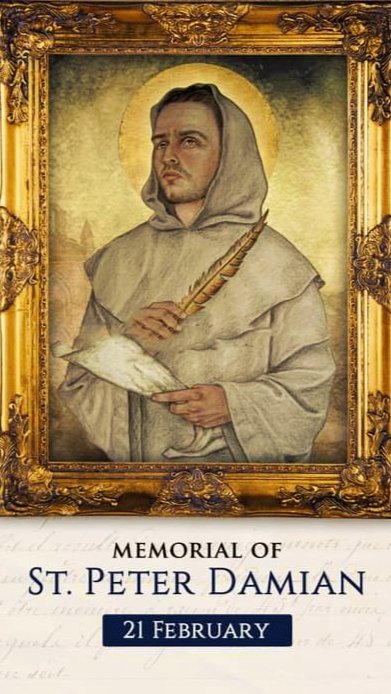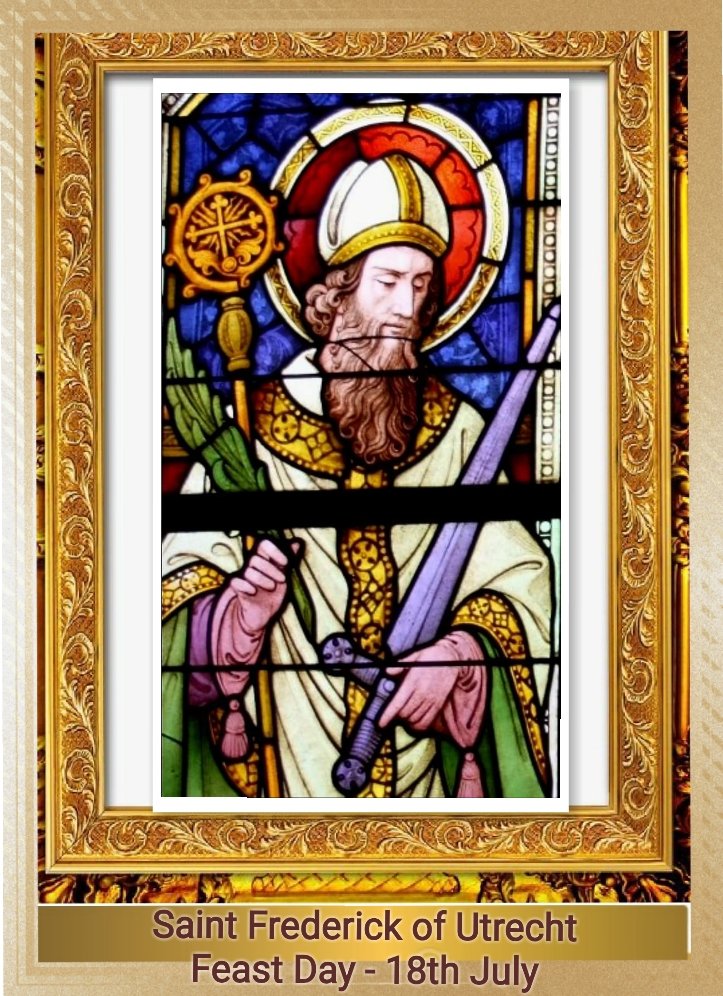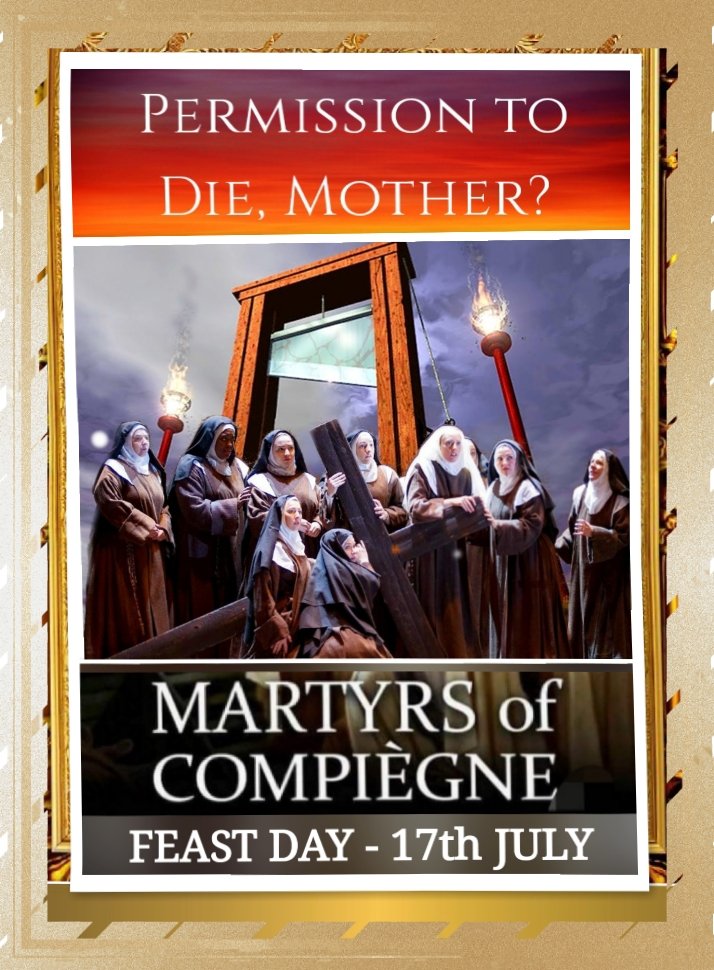FEAST OF SAINT PETER DAMIAN, BISHOP AND DOCTOR OF THE CHURCH
FEAST DAY – 21st FEBRUARY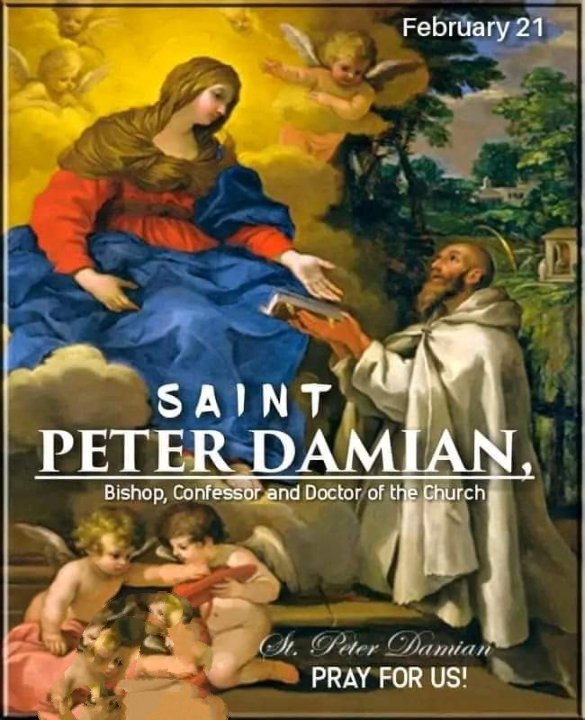
St. Peter Damian was born in Ravenna, Italy, around 1007. He was the youngest of many children in his family. Although they were noble, the family was poor, and Peter was orphaned at a young age. He was adopted by one of his older brothers, who malnourished him and forced him to work as a swineherd. A few years later, another of his brothers, who was archpriest at Ravenna, named Damianus, released him out of the care of the other brother and sent him to be educated. Peter, in gratefulness of Damianus’ kindness, took the name Damianus, as his second name.
Peter excelled in his education, especially in theology and canon law. By the age of 25, he was a famous teacher at the University of Parma and at Ravenna. After the day was done, Peter often invited students and poor people to his home for dinners that he served himself. He remembered what it felt like to be hungry. In those days, Peter was very strict with himself. He wore a hair shirt under his clothes, fasted rigorously and spent many hours in prayer.
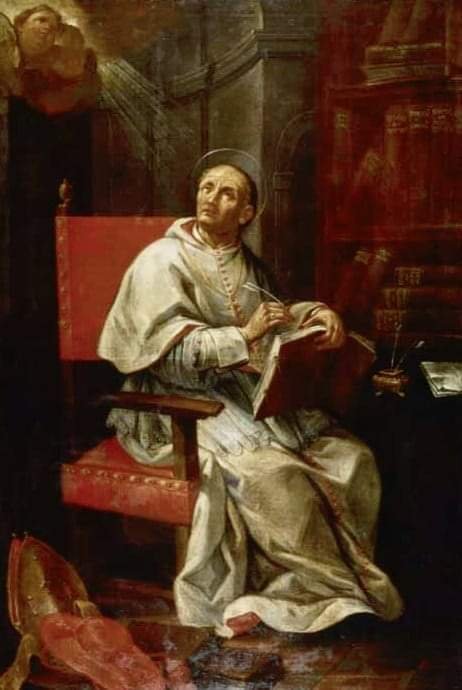
Soon, he decided to give up teaching and give himself completely to prayer with the Benedictines of the reform of Saint Romuald at Fonte Avellana. Peter was so eager to pray and slept so little, that he suffered from severe insomnia. He found he needed to use some prudence in taking care of himself. When he was not praying, he studied the Bible. The abbot commanded that when he died Peter should succeed him. Abbot Peter founded five other hermitages.
He encouraged his brothers in a life of prayer and solitude and wanted nothing more for himself. The Holy See periodically called on him, however, to be a peacemaker or troubleshooter, between two abbeys in dispute or a cleric or government official in some disagreement with Rome. Finally, Pope Stephen IX made Peter the cardinal-bishop of Ostia. He worked hard to wipe out simony (the buying of church offices), and encouraged his priests to observe celibacy and urged even the diocesan clergy to live together and maintain scheduled prayer and religious observance.
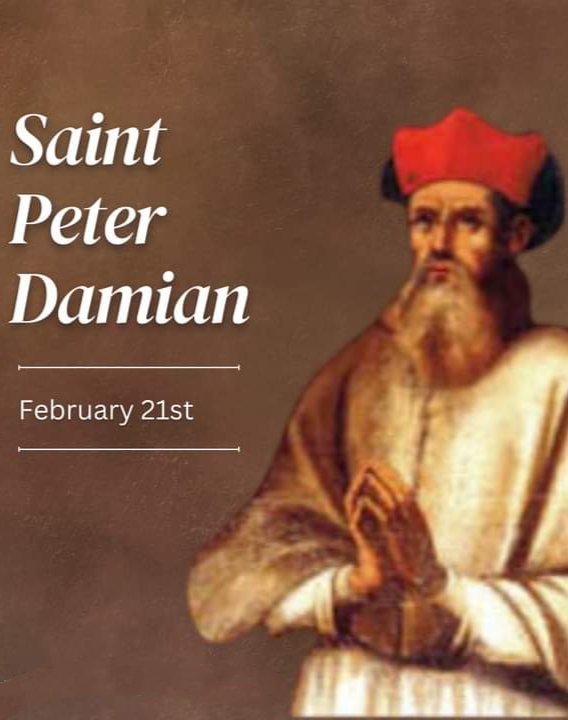
He wished to restore primitive discipline among religious and priests, warning against needless travel, violations of poverty, and too comfortable living. He even wrote to the bishop of Besancon complaining that the canons there sat down when they were singing the psalms in the Divine Office. He wrote many letters. Some 170 are extant. We also have 53 of his sermons and seven lives, or biographies, that he wrote. He preferred examples and stories rather than theory in his writings. The liturgical offices he wrote prove his talent as a stylist in Latin.
Between 1049 and 1054, he composed the powerful book Liber Gomorrhianus, or “Book of Gomorrah”, addressing it to the new pope, Leo IX, who himself would eventually be canonized. Pope St. Leo IX praised St. Peter Damian’s work and the monk became a key reformer, addressing widespread excesses and grave sins. In 1061, he helped resolve a dispute about the papacy. The antipope, Cadalous (Honorius II) laid claim to the papacy, but Peter attempted to convince him to withdraw his claim. Cadalous refused. When a council was summoned to Augsburg, a long statement by Peter Damian was read, which influenced the decision in favor of Alexander II.
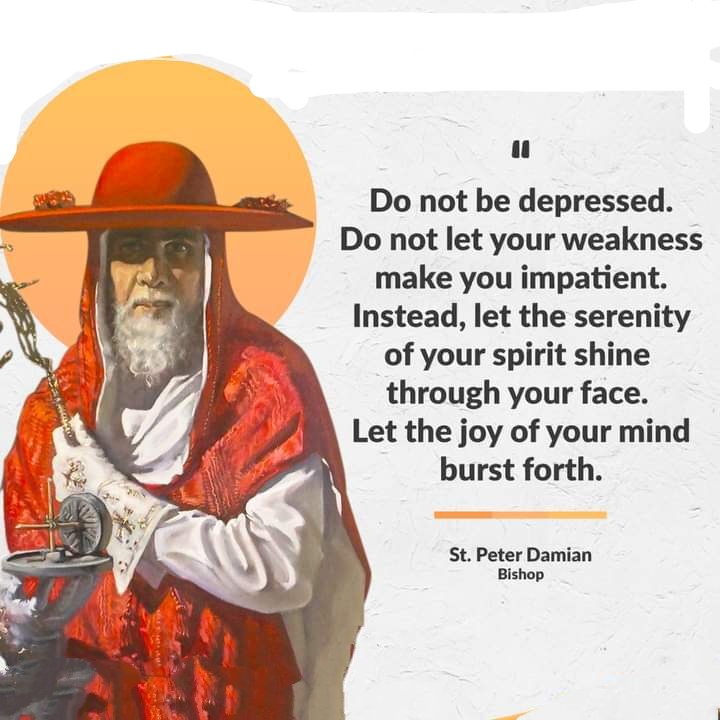
He asked often to be allowed to retire as cardinal-bishop of Ostia, and finally Pope Alexander II consented. Papal elections which had always been sources of deep division, causing lasting damage to the Body of Christ were remedied when Saint Peter headed a group of reform-minded Cardinals and others who decided in 1059 that only Cardinal Bishops could elect the Pope. Not nobles, crowds or emperors. Saint Peter wrote that Cardinal Bishops do the electing, other clergy give their assent, and the people give their applause. This is exactly the program the Church has followed for almost a thousand years.
Today’s saint sought to reform himself first, and then to pull every weed that choked life from the healthy plants in the garden of the Church. He fought against simony (the purchasing of church offices), against clerical marriage, and for the reform of papal elections. He also thundered, in the strongest and clearest of language, against the scourge of homosexuality in the priesthood. Peter’s extreme mortifications, learning, wisdom, uninterrupted life of prayer, and desire to right the ship of the Church put him into contact with many other Church leaders who desired the same. Peter was called to Rome and became a counselor to a succession of popes.
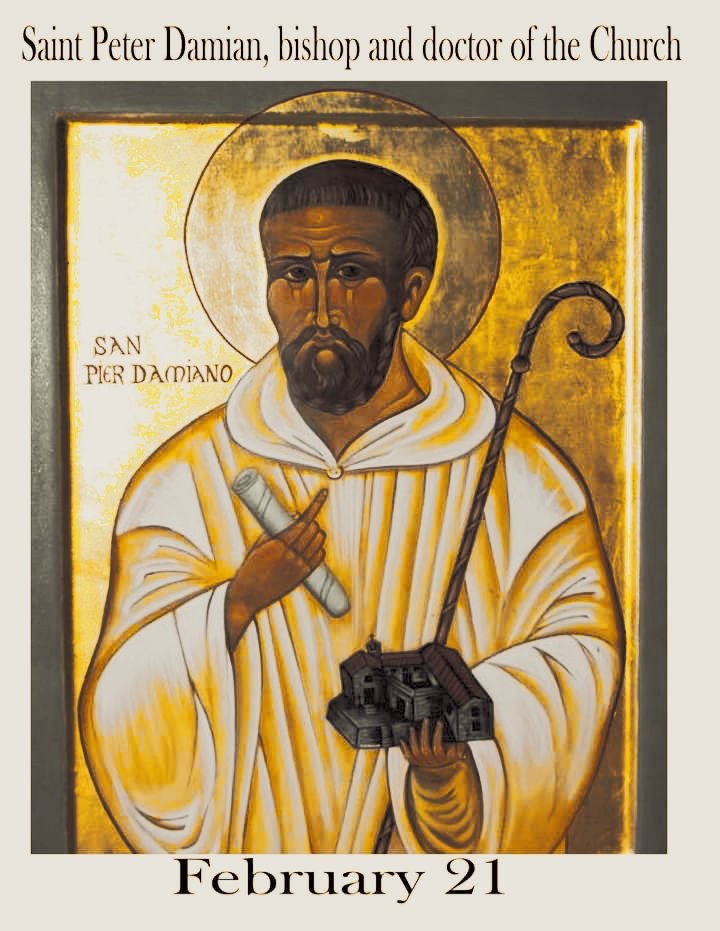
He was happy to be once again just a monk, but he was still called to serve as a papal legate. When returning from such an assignment in Ravenna, he was overcome by a fever. With the monks gathered around him saying the Divine Office, he died on February 22, 1072. As a monk, a bishop, and a saint, Peter Damian lived one of the Benedictine Rules completely: “Do not prefer anything to the love of Christ.”
Peter Damian was declared a Doctor of the Church by Pope Leo XII in 1828. His feast day is February 21. His body is now located in a chapel dedicated to him in the cathedral of Faenza, Italy, of which he is Patron. His is symbolically shown as a Cardinal, bearing a discipline in his hand and a pilgrim holding a papal Bull, to signify his many legations.
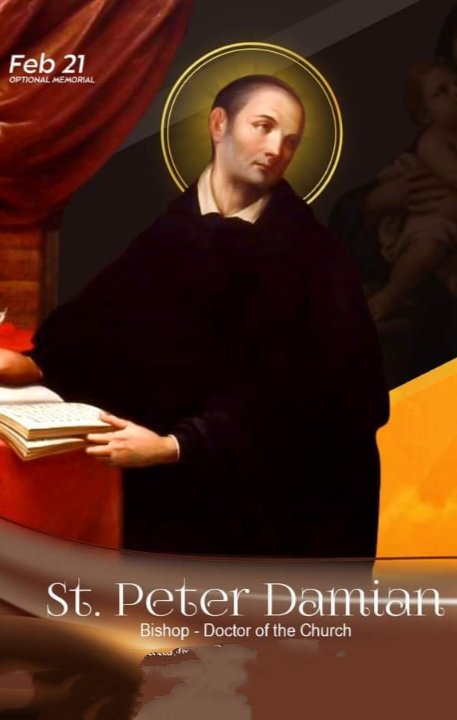
PRAYER
Grant, we pray, Almighty God, that we may so follow the teaching and example of the Bishop Saint Peter Damian, that, putting nothing before Christ and always ardent in the service of your Church, we may be led to the joys of eternal light.
Through our Lord Jesus Christ, your Son, who lives and reigns with you in the unity of the Holy Spirit, one God, for ever and ever. Amen
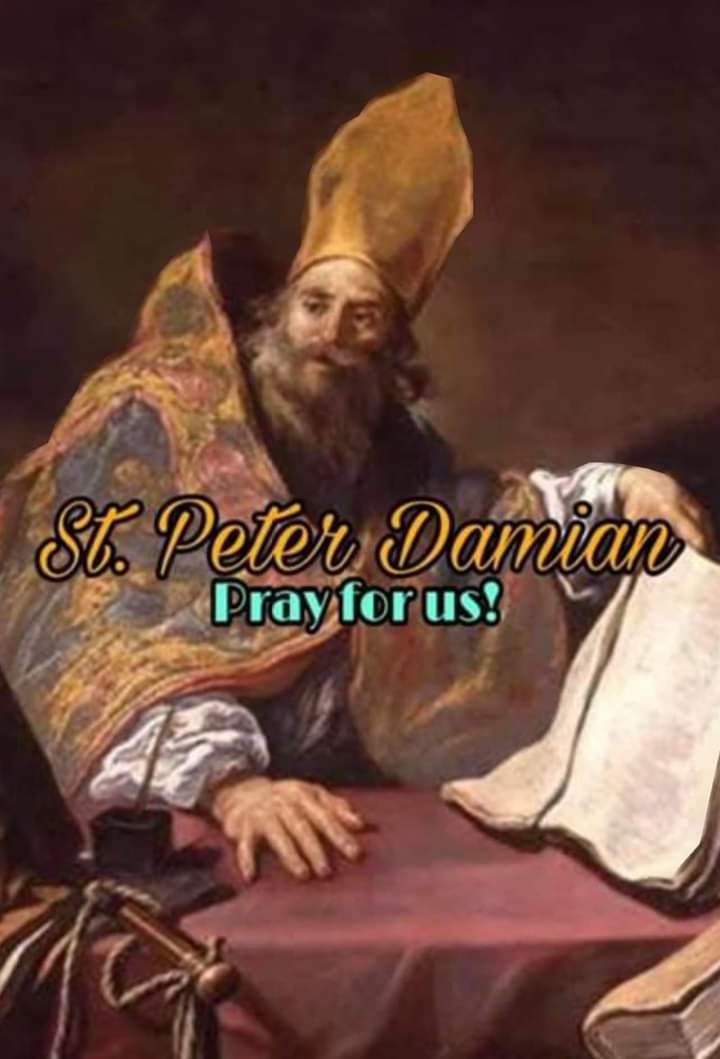
Saint Peter Damian, you reformed your own monastery, and then carried it forward to the Church. You always practiced first and then preached. You even endured the detraction and calumny of your peers.
Help us to reform others by our example, learning, perseverance, sacrifices, and prayers. Pray and intercede for us. Amen

